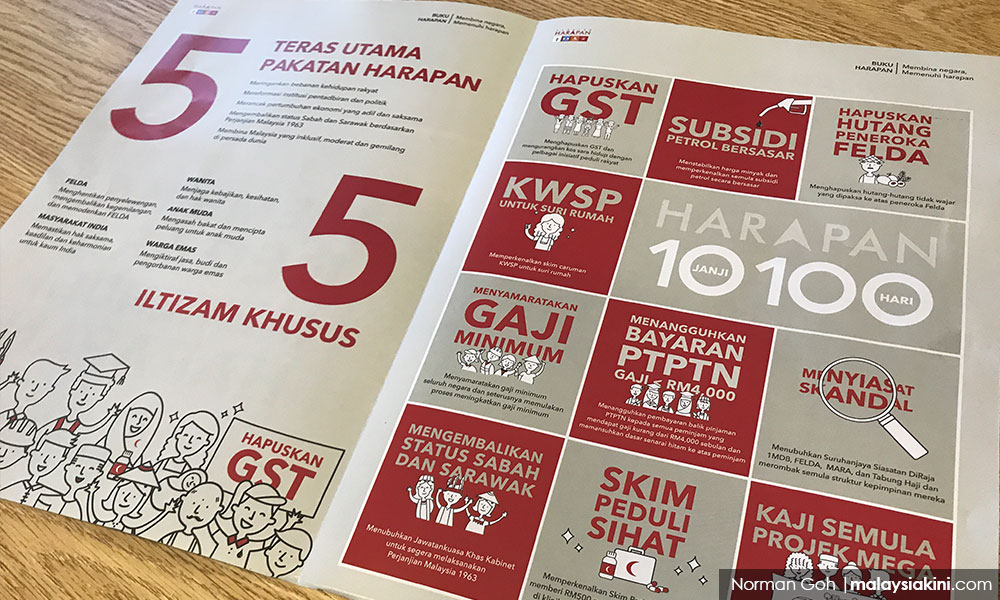
The C4 Center lauds Negeri Sembilan excos, who became the first state council in Malaysia to declare their personal assets this week, and calls on parliamentarians to follow suit.
This is in line with three Amanah ministers who have similarly publicly declared their assets: Mohammad Sabu (Defence), Dr Dzulkefly Ahmad (Health) and Salahuddin Ayub (Agriculture and Agro-Based Industry).
C4 Center would like to remind the Pakatan Harapan government has committed to public asset declaration in their election manifesto. In Buku Harapan, the coalition’s election manifesto, it is mentioned that:
“All members of the Dewan Rakyat, Dewan Negara, and government officials with Jusa C ranking and above, will be obliged to make a declaration of assets and income. As a symbol of the Harapan Government's commitment to the principles of transparency and openness, we will take immediate steps to play active roles in suitable international platforms, starting with signing up to the Open Government Partnership which now consists of more 70 countries around the world.”
Recently, it was reported that Negeri Sembilan excos were the first state council in Malaysia to declare their personal assets. This comes together with an announcement that their statutory declarations will be made public within three months’ time on a government portal.
If Negeri Sembilan excos can do it, why can’t all federal parliamentarians also follow the example?
Now that their appointment ceremony has been completed and a ministerial lineup confirmed, we need to walk the walk, and not just talk the talk. It’s nothing that has not already been done.

As the Harapan manifesto has clearly stated its intentions of joining the Open Government Partnership, one of their joining criteria is the presence of the rules for public officials asset disclosure.
Furthermore, the very core of best practices for asset declaration is filing declarations before and after taking office.
C4 Center understands that the National Centre for Governance, Integrity and Anti-Corruption (GIACC) is formulating an asset declaration system and a standardised declaration form.
Given that parliament has now convened, and not all Parliamentarians have declared their assets, GIACC needs to keep the public informed of the process, and ensure that all its priorities are directed towards getting the asset declaration law passed as soon as possible.
C4 Center calls on the cabinet to waste no time in approving a framework as C4 Center, with the assistance of the constitutional committee of the Bar Council, has researched and authored a Public Asset Declaration Framework (PADF) according to best practices for an asset declaration system.
Malaysia has been rocked by the poor accountability of the previous administration, leading to widespread public shock of the amount of cash and valuable assets confiscated from the former prime minister’s residence.
With a public asset declaration of parliamentarians, we can prevent this from ever happening again.
We must institute a strong law now to compel current and future politicians of Malaysia to declare their assets—neither at their own whim and fancy for their own political gain, nor as a tool for the prime minister to control their own patronage network—as a method for honest accountability to the public.
CYNTHIA GABRIEL is the executive director of the Center to Combat Corruption and Cronyism (C4 Center). - Mkini



No comments:
Post a Comment
Note: Only a member of this blog may post a comment.